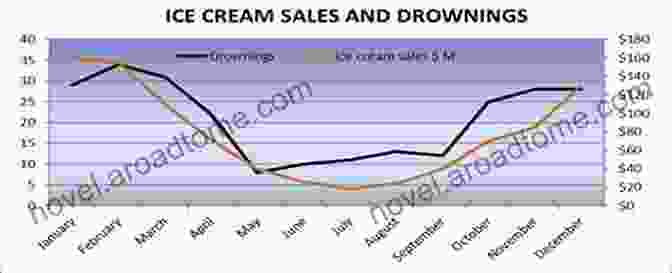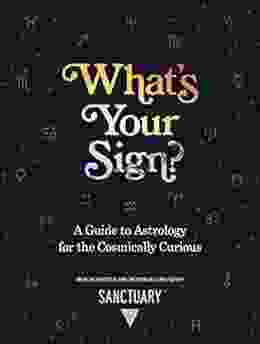Unveiling the Truths and Debunking the Myths: Fads and Fallacies in the Social Sciences

The social sciences, encompassing fields such as psychology, sociology, economics, and anthropology, have made significant contributions to our understanding of human behavior and societies. However, it is crucial to recognize that within these disciplines, there have also been fads and fallacies that have gained prominence despite lacking scientific rigor or empirical support. These fallacies can lead to misguided beliefs, ineffective policies, and a distorted view of social phenomena.
5 out of 5
| Language | : | English |
| File size | : | 2604 KB |
| Text-to-Speech | : | Enabled |
| Screen Reader | : | Supported |
| Word Wise | : | Enabled |
| Print length | : | 230 pages |
Fad 1: The Power of Positive Thinking
The notion that positive thinking can overcome any obstacle and lead to overwhelming success has gained widespread popularity in the realm of self-help literature. While a positive attitude can indeed have benefits, it is fallacious to believe that it can magically solve all problems or alter external circumstances. Research has shown that dwelling excessively on positive thoughts can lead to unrealistic expectations and disappointment when life presents inevitable challenges.

Fad 2: The Myth of the Meritocracy
The belief that society is a meritocracy, where individuals succeed solely based on their abilities and hard work, is a pervasive yet flawed misconception. Sociological research has consistently revealed that factors such as social class, race, gender, and access to resources play a significant role in determining life outcomes. The myth of the meritocracy not only ignores structural inequalities but also perpetuates the illusion that those who fail are simply lacking in effort or talent.

Fad 3: The Correlation-Causation Fallacy
One of the most common fallacies in the social sciences is the assumption that correlation implies causation. Simply because two variables are correlated does not mean that one causes the other. For example, a study that finds a correlation between ice cream consumption and drowning rates does not necessarily mean that eating ice cream causes drowning. It is possible that both variables are influenced by a third factor, such as hot summer weather.

Fad 4: The Halo Effect
The halo effect refers to the tendency to attribute positive qualities to someone based on one or two positive attributes. For instance, we may perceive a physically attractive person as being more intelligent or trustworthy, even though there is no objective evidence to support this assumption. The halo effect can lead to biased judgments and decision-making, particularly in social and professional settings.

Fad 5: The Bystander Effect
The bystander effect suggests that the presence of others can inhibit an individual's willingness to intervene in an emergency or help someone in need. This phenomenon is often attributed to diffusion of responsibility, where each bystander assumes that someone else will take action. However, research has shown that the bystander effect is not as widespread as once believed, and that factors such as the clarity of the emergency, the presence of a clear leader, and the perceived social cost of intervention play a more significant role.

Fads and fallacies in the social sciences can have far-reaching consequences, influencing public policy, shaping individual beliefs, and distorting our understanding of social phenomena. It is essential to be critically aware of these fallacies, to question assumptions, and to rely on rigorous scientific research to guide our s.
By embracing scientific skepticism and promoting evidence-based thinking, we can avoid the pitfalls of fads and fallacies, and gain a more accurate and nuanced understanding of the human condition and the societies we live in.
5 out of 5
| Language | : | English |
| File size | : | 2604 KB |
| Text-to-Speech | : | Enabled |
| Screen Reader | : | Supported |
| Word Wise | : | Enabled |
| Print length | : | 230 pages |
Do you want to contribute by writing guest posts on this blog?
Please contact us and send us a resume of previous articles that you have written.
 Book
Book Novel
Novel Page
Page Chapter
Chapter Text
Text Story
Story Genre
Genre Reader
Reader Library
Library Paperback
Paperback E-book
E-book Magazine
Magazine Newspaper
Newspaper Paragraph
Paragraph Sentence
Sentence Bookmark
Bookmark Shelf
Shelf Glossary
Glossary Bibliography
Bibliography Foreword
Foreword Preface
Preface Synopsis
Synopsis Annotation
Annotation Footnote
Footnote Manuscript
Manuscript Scroll
Scroll Codex
Codex Tome
Tome Bestseller
Bestseller Classics
Classics Library card
Library card Narrative
Narrative Biography
Biography Autobiography
Autobiography Memoir
Memoir Reference
Reference Encyclopedia
Encyclopedia Reesa Shayne
Reesa Shayne Richard Bronson
Richard Bronson Shaheen Merali
Shaheen Merali Tara Brach
Tara Brach Wayne Scraba
Wayne Scraba Tom Cotter
Tom Cotter Sameer Acharya
Sameer Acharya Shawn Mcclendon
Shawn Mcclendon Rak Razam
Rak Razam Richard F Thomas
Richard F Thomas Robert P George
Robert P George Richard D Harroch
Richard D Harroch Lasa Limpin
Lasa Limpin Samara O Shea
Samara O Shea Sheldon Bull
Sheldon Bull Rossella Pruneti
Rossella Pruneti Saniyasnain Khan
Saniyasnain Khan Shirley Paden
Shirley Paden Ric Messier
Ric Messier Vicki K Black
Vicki K Black
Light bulbAdvertise smarter! Our strategic ad space ensures maximum exposure. Reserve your spot today!

 Jorge AmadoUnveiling the Streets and Subways of New York City: Your Essential Guide to...
Jorge AmadoUnveiling the Streets and Subways of New York City: Your Essential Guide to...
 Ethan MitchellSimple Powerful Technique For Healing And Spiritual Strength: Unleash Your...
Ethan MitchellSimple Powerful Technique For Healing And Spiritual Strength: Unleash Your...
 Shannon SimmonsStay Safe and Protected with 50 Pieces Disposable Ply Protection Face Cover...
Shannon SimmonsStay Safe and Protected with 50 Pieces Disposable Ply Protection Face Cover... Christian BarnesFollow ·12.4k
Christian BarnesFollow ·12.4k Fred FosterFollow ·18.4k
Fred FosterFollow ·18.4k Dean ButlerFollow ·3.4k
Dean ButlerFollow ·3.4k Bill GrantFollow ·7.1k
Bill GrantFollow ·7.1k John SteinbeckFollow ·13.1k
John SteinbeckFollow ·13.1k Troy SimmonsFollow ·14.2k
Troy SimmonsFollow ·14.2k Wayne CarterFollow ·11k
Wayne CarterFollow ·11k Andy ColeFollow ·18k
Andy ColeFollow ·18k

 Eli Brooks
Eli BrooksOver 700 Organic Remedies Shortcuts And Tips For The...
: Embracing the Power of...

 Carter Hayes
Carter HayesUnveiling the Unofficial Political Religion of India: A...
Embark on an...

 Colin Richardson
Colin RichardsonOf Colors and Critters: A Journey Through the Animal...
In the tapestry of...

 Harry Hayes
Harry HayesUnveiling the Hidden Truths: Mao, Stalin, and the Korean...
Step into the enigmatic realm of the 20th...

 George Bernard Shaw
George Bernard ShawBand 1b Pink: A Journey Through the World of Reading
Band 1b Pink is a...
5 out of 5
| Language | : | English |
| File size | : | 2604 KB |
| Text-to-Speech | : | Enabled |
| Screen Reader | : | Supported |
| Word Wise | : | Enabled |
| Print length | : | 230 pages |








